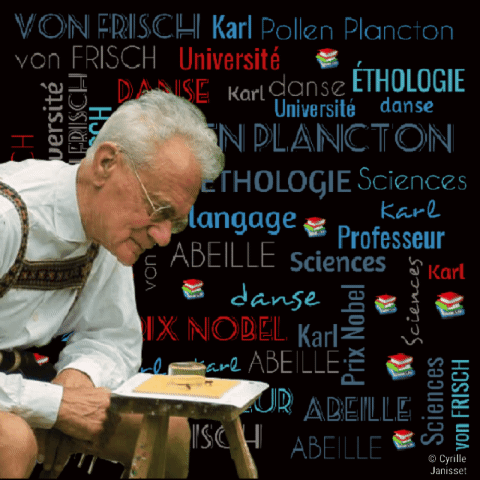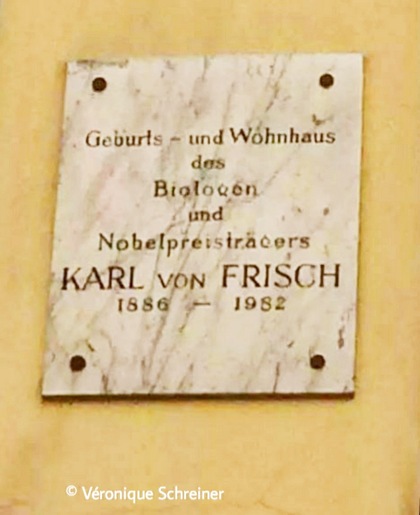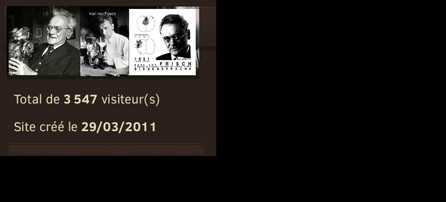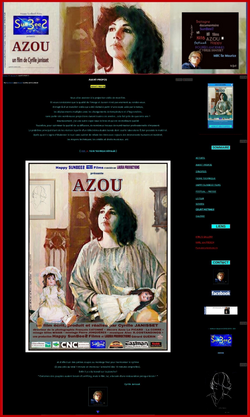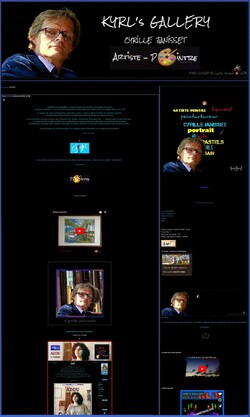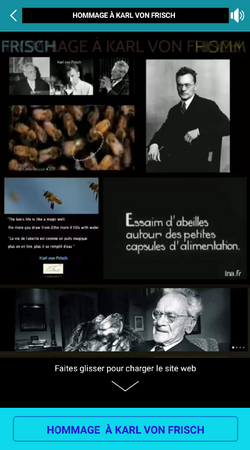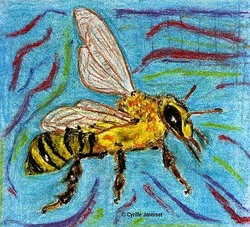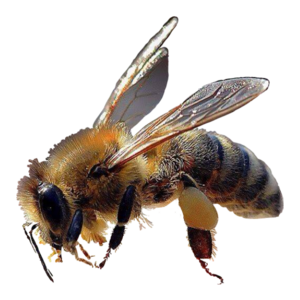-
Karl von FRISCH by Tania Munz
Karl von FRISCH by Tania MUNZ
The Dancing Bees: Karl von Frisch and the Discovery of the Honeybee Language from Linda Hall Library on Vimeo.
https://www.spectator.co.uk/article/the-mystery-of-the-waggle-dance
** watch future Linda Hall Library lectures live at new.livestream.com/lindahall **
September 8, 2016, in the Main Reading Room of the Linda Hall Library
About the lecture:
The bees are dying. And what normally goes unremarked comes into stark relief –
humans depend on these insects for much of their food supply, and that which threatens the insects also very much threatens our species.
But this isn’t the first time humans have made a concerted effort to solve the bees mysterious dying.
During WWII, a bee plague devastated central European bee populations and Germany, especially, was waging a war of attrition that critically centered on food.
The situation was so dire that a scientist by the name of Karl von Frisch would be able to successfully argue to keep his research position,
despite having been declared one-quarter Jewish by the Nazi government. He re-trenched his work in an effort to help solve the mystery of the dying bees.
And he would do some of his most important work during the period – he discovered the honeybee dance language –
with funding from the Nazi Ministry of Food and Agriculture.
But in the face of such dazzling insect and scientific accomplishment, the dire situation from which these findings arose is all but forgotten.
It all started with the dying bees.
About the speaker:
Tania Munz is Vice President for Research and Scholarship at the Linda Hall Library.
Previously, she was a lecturer at Northwestern University and a research scholar at the Max Planck Institute for the History of Science in Berlin.
She holds a PhD in the history of science from Princeton University.
Video produced by The VideoWorks of Roeland Park, Kansas.
The dancing bees : Karl von Frisch and the discovery of the honeybee language
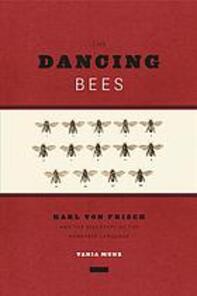
Auteur : Tania Munz Éditeur: Chicago : The University of Chicago Press, 2016. Édition/format: Livre imprimé : Anglais Voir toutes les éditions et tous les formats Sujets: Source:

We think of bees as being among the busiest workers in the garden, admiring them for their productivity. But amid their buzzing, they are also great communicators and unusual dancers. As Karl von Frisch (1886-1982) discovered during World War II, bees communicate the location of food sources to each other through complex circle and waggle dances. For centuries, beekeepers had observed these curious movements in hives, and others had speculated about the possibility of a bee language used to manage the work of the hive. But it took von Frisch to determine that the bees dances communicated precise information about the distance and direction of food sources. As Tania Munz shows in this exploration of von Frisch's life and research, this important discovery came amid the tense circumstances of the Third Reich. "The Dancing Bees" draws on previously unexplored archival sources in order to reveal von Frisch's full story, including how the Nazi government in 1940 determined that he was one-quarter Jewish, revoked his teaching privileges, and sought to prevent him from working altogether until circumstances intervened. In the 1940s, bee populations throughout Europe were facing the devastating effects of a plague (just as they are today), and because the bees were essential to the pollination of crops, von Frisch's research was deemed critical to maintaining the food supply of a nation at war. The bees, as von Frisch put it years later, saved his life. Munz not only explores von Frisch s complicated career in the Third Reich, she looks closely at the legacy of his work and the later debates about the significance of the bee language and the science of animal communication. This first in-depth biography of von Frisch paints a complex and nuanced portrait of a scientist at work under Nazi rule. "The Dancing Bees" will be welcomed by anyone seeking to better understand not only this chapter of the history of science but also the peculiar waggles of our garden visitors
Nous pensons que les abeilles font partie des travailleurs les plus occupés du jardin, les admirant pour leur productivité. Mais au milieu de leur bourdonnement, ils sont aussi de grands communicateurs et des danseurs hors du commun. Comme Karl von Frisch (1886-1982) l'a découvert pendant la Seconde Guerre mondiale, les abeilles se communiquent l'emplacement des sources de nourriture par le biais de danses complexes en cercle et en agitant. Pendant des siècles, les apiculteurs avaient observé ces curieux mouvements dans les ruches, et d'autres avaient spéculé sur la possibilité d'un langage apicole utilisé pour gérer le travail de la ruche. Mais il a fallu von Frisch pour déterminer que les danses des abeilles communiquaient des informations précises sur la distance et la direction des sources de nourriture. Comme le montre Tania Munz dans cette exploration de la vie et des recherches de von Frisch, cette importante découverte est survenue dans les circonstances tendues du Troisième Reich. "The Dancing Bees" s'appuie sur des sources d'archives jusque-là inexplorées afin de révéler toute l'histoire de von Frisch, y compris comment le gouvernement nazi en 1940 a déterminé qu'il était juif au quart, a révoqué ses privilèges d'enseignement et a cherché à l'empêcher de travailler jusqu'à ce que les circonstances sont intervenues. Dans les années 1940, les populations d'abeilles dans toute l'Europe étaient confrontées aux effets dévastateurs d'une peste (comme elles le sont aujourd'hui), et parce que les abeilles étaient essentielles à la pollinisation des cultures, les recherches de von Frisch ont été jugées essentielles au maintien de l'approvisionnement alimentaire d'une nation. en guerre. Les abeilles, comme le dit von Frisch des années plus tard, lui ont sauvé la vie. Munz n'explore pas seulement la carrière compliquée de von Frisch dans le Troisième Reich, elle examine de près l'héritage de son travail et les débats ultérieurs sur l'importance du langage des abeilles et de la science de la communication animale. Cette première biographie approfondie de von Frisch dresse le portrait complexe et nuancé d'un scientifique à l'œuvre sous le régime nazi. "Les abeilles dansantes" seront accueillies par tous ceux qui cherchent à mieux comprendre non seulement ce chapitre de l'histoire des sciences mais aussi les frémissements particuliers de nos visiteurs de jardin
— HOMMAGE A KARL VON FRISCH * Cyrille JANISSET - Copyright © 2009 - 2023 - Tous droits réservés —
par CYRILLE JANISSET
